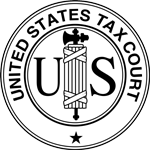- Free Consultation: (772) 418-0949 Tap Here to Call Us
How to Deal with Back Taxes and What to Do About Unfiled Tax Returns

IRS Statute of Limitations and Unfiled Tax Returns
For the Video, click here: “Unfiled Tax Returns Help“
Unfortunately, the desire to set aside time for filing tax returns can sometimes get overridden due to many of life’s stresses and unavoidable situations. Even with everything going on, usually, one cannot forgo filing tax returns if one meets the mandatory filing requirements.
Not everyone is required to file a tax return if their income does not exceed certain IRS thresholds. The thresholds are determined based on types of income, filing status, and age. This blog will discuss these thresholds in greater detail, and for additional information, please go to the IRS website.
If I Don’t File my Tax Return, Will I Lose My Tax Refund?
To receive a refund, you must file your tax return. In addition, for any year in which a refund is available, there is a three-year time limit from that year’s filing deadline to claim a refund. So, yes, you will forfeit your refund if you do not file within the required time frame.
Here’s an example. Let’s say you have not filed your tax returns for the last five years and are tax refund eligible for each of those years. If you were to file the returns right now, you would be able to obtain refunds for the most recent three years, whereas years four and five would not be eligible, and the respective refunds would be forfeited. Not getting a refund is very unfortunate; however, when you have unfiled returns where taxes are due, the consequences can become more severe and increase as time goes on. If you need help with unfiled tax returns, please get in touch with Harmon Tax Resolution, LLC, and have a highly experienced and qualified CPA-IRS EA-Tax Attorney – Will Harmon, prepare your returns and represent you if needed.
What are the Consequences If I don’t File my Tax Returns?
For starters, there is no three-year filing limitation requirement like with a refund return statute of limitations. The IRS could go back as far as it deems necessary to pursue obtaining a tax assessment for any unfiled years in which taxes are due. Usually, IRS will apply tax penalties and interest for any late-filed returns. In some cases, after a significant time of non-filing has elapsed, the IRS may also elect to prepare your tax return, known as a Substitute for Return (SFR). The IRS completes an SFR using information from third parties, such as 1099s and W2s. Whether you file late or the IRS prepares an SFR, the tax assessed in either case could now be subject to the IRS collection apparatus, which can become very costly and highly stressful. In addition to avoiding these types of costs and unhealthy stresses, filing your tax returns is another way to prevent or expose any identity theft occurrence resulting from misappropriated tax information. Please read on for further details.
IRS Tax Penalties
When you file your tax returns late and if there are tax balances due, the IRS will start assessing penalties and interest as of the dates the returns are due. Failure to File Penalty (FTF)occurs if you don’t file your tax return or file your tax return late. The Failure to File Penalty is 5% of the unpaid taxes computed for each month or part of a month in which the tax return is delinquent. The Penalty cap is 25% of your due taxes. For instance, if you owe $2,000, the monthly FTF penalty is $100 a month, which can max out at $500. In addition, interest is calculated at the IRS-set rate and accrued towards the tax balance and any penalty amounts. Interest and penalties can start to add up! The best way to avoid the FTF penalty is to timely file your tax return, even if you cannot pay the tax due by the due date. Additionally, the IRS assesses an underpayment of tax penalty, Failure to Pay Penalty (FTP), on any unpaid taxes still owed at the time of filing. Typically, underpayment penalties are 0.5% of the underpaid amount accrued monthly and capped at 25%.
Although both penalties are capped at 25% of the total tax due, the FTP penalty accrues at one-tenth of the FTF penalty rate. Even if you cannot pay the taxes owed, filing the tax return and avoiding the Failure to File Penalty altogether is essential. Under the FTP penalty, it will take significantly longer for you to incur the full 25% of your tax due in penalty.
How Is IRS Tax Interest Calculated?
Generally, interest accrues on any unpaid tax from the due date of the return until the date of payment in full. Interest is also applied to penalty amounts and begins at the assessment time. The interest rate is determined quarterly and is the federal short-term rate plus 3 percent.
IRS Substitute for Return (SFR)
One could argue that if one does not file, the IRS will not be able to assess tax penalties based solely on taxes owed. However, the IRS uses the SFR to counter this because preparing an SFR allows the IRS to create the tax amount assessment for penalty amount determinations and initiate the collections process. It may seem practical to have the IRS file your return since IRS can’t then claim the return is incorrect; you avoid tax preparation fees and having to spend time preparing the return.
The price for having the IRS do an SFR can be exceedingly steep in several areas. Firstly, IRS will do retroactive penalty assessments and interest add-ons back to when the return was originally due. Secondly and most importantly, if the IRS does prepare an SFR, it will do so by not including any credits, deductions, or exemptions, which could be extremely costly. For example, suppose you have significant self-employment earnings being reported on third-party 1099s. In that case, the IRS will only use this information, and you will not be given any benefit for the allowable deductible expenses associated with these revenues. Couple this with the increase in penalties and interest; it is most likely in the taxpayer’s best interest to file their return to take advantage of any deductions, credits, and exemptions they’re entitled to claim.
Another reason to avoid an SFR by the IRS is the assessed tax is not included in bankruptcy considerations. In contrast, the possibility exists for income tax assessed from taxpayer-prepared returns, provided other necessary conditions are met. For more on that, please refer to our bankruptcy information link.
What is the IRS Process for an SFR?
The SFR process starts with the IRS sending a notice indicating they have not received the applicable year’s tax returns. Before sending this notice, the IRS has prepared the SFR return. Notice will contain the tax liability assessment to include penalties and interest. You do have thirty days to:
- Prepare and submit an applicable tax return(s).
- Prepare and submit a statement to the IRS indicating why you should not be required to file the return(s) or if there are some mitigating circumstances the IRS should consider in your case.
- Agree with the IRS assessment by signing off on it.
Suppose you have not responded to the original tax proposal letter within 30 days. In that case, the IRS will send out a Notice of Deficiency IRS Letters 3219 and 531 (also referred to as 90-Day Letters), which is a taxpayer’s legal notice that the IRS is proposing a deficiency (balance due) consisting of assessed tax debt along with any interest and penalties. The letter informs that you have 90 days to exercise your right to petition the U.S. Tax Court.
How do I respond to an IRS deficiency notice?
Here are your options for what to do:
- If you want to challenge the deficiency determination, file a petition with the U.S. Tax Court.
- File your tax return immediately (no later than 90 days from the date of the CP3219N).
- Accept the IRS proposed assessment by signing and returning the Response form.
How Does the IRS Collect Unpaid Taxes?
If an unpaid IRS-assessed tax liability exists, whether from a taxpayer’s tax filing or n IRS Substitute for Return, the IRS will initiate its progressive collection efforts. The IRS will start by informing the taxpayer of the debt in the hope of securing the taxes owed or, if the taxpayer qualifies, obtaining a good debt payment plan. At this time, the IRS will inform of its rights to place a lien on the taxpayer’s current and future obtained property. The IRS will acquire the liens if a debt resolution has not occurred. Depending on the balance owed, the IRS may initiate a lien even if a payment plan is in place. However, the IRS will not inform you until after filing the lien. Suppose a tax resolution is not in place. In that case, the collection progression will escalate to where the IRS can pursue obtaining levies on your bank accounts and place garnishments on your wages and other sources of income.
Additionally, through foreclosure judgments, the IRS can seize your property, including your home. If you find yourself heading into the grips of the IRS collection apparatus, it may be an excellent time to seek help from a tax professional who deals directly with solving IRS issues.
Preventing Tax Information-Related Identity Theft
Timely filing your tax returns will help mitigate your risk for tax-related identity theft because it helps prevent someone from using your social security to file a fake return in order and obtain a refund. The IRS will investigate when a duplicate attempt is made to file a tax return. You increase the risk of identity theft when you choose not to file.
Will I Need to File Back Taxes?
According to IRS tax return filing rules, during 2023, you must file a tax return if you meet any of the following criteria:
- Your income is over $13,850, and you’re filing as single.
- Your income is over $27,700, and you’re filing as married filing jointly or as a qualifying widower.
- You have over $400 in net earnings from self-employment.
- Your income is over $20,800, and you’re filing as head of household.
- Your income is over $5, and you’re filing as married filing separately.
- You owe the alternative minimum tax.
- You owe an early withdrawal penalty from a 401(k) or an IRA.
- You owe Medicare or Social Security on tips.
- You owe household employment taxes.
Note that the income filing threshold is higher for people over 65. For instance, if you’re 65 and filing as single, you don’t have to file unless your gross income is over $15,700.
Bear in mind that these are 2023 tax income thresholds. Tax income thresholds change every year. To determine if you need to file taxes for a particular year, you must look at that year’s filing requirements.
In addition, for tax planning purposes, it may be prudent to see the other IRS inflation adjustments for 2023. Please refer to this IRS article, “IRS provides tax inflation adjustments for tax year 2023.”
Must I File a Tax Return for Every Year I Missed?
It depends on whether your income for a particular year exceeds that year’s IRS income threshold filing requirements. There could be some years when you are not required to file.
For example, suppose you are single and have not filed taxes for four years. Your income in 2017 was $24,000; in 2018 was $2,250; in 2019 was $28,000; in 2020 was $6,000. There was no self-employment income in all years, and you were not liable for items requiring reporting.
Your income exceeded the reporting threshold in 2017 and 2018; therefore, you must file a return for those years. However, in 2018 and 2020, your income did not exceed the threshold resulting in your not being required to file a tax return in those years, but if you are eligible for a refund in any of these years, you will want to file the respective tax return.
What Are the IRS Statute of Limitations on Unfiled Tax Returns, Tax Collection, and Tax Refunds?
There are distinctly different Statutes of Limitations applicable for assessment, collection, and refunds. It is essential to know what each is. Here is a breakdown for each type.
Statute of Limitations on Unfiled Returns
For Unfiled Returns, there is no Statute of Limitations limiting the IRS’s ability to prepare a Substitute for Tax Return for any year in which a taxpayer had a requirement to file a tax return and did not file.
Collection Statute of Limitations on Tax Debt
The IRS has what is known as the Collection Statute Expiration Date (CSED) statute, which provides the IRS has ten years to collect an assessed tax liability. Generally, once the ten-year statute has expired on tax liability, the IRS cannot continue collection activities and will end up writing off the debt from the books.
Tax Refund Statute of Limitations
The statute of limitations for claiming a refund is the later of either three years after the filing deadline or two years from the date the tax was paid. For purposes of the limitation, a return filed or tax paid before the last day prescribed for its filing or payment (without regard to extensions) is considered filed or paid on that last day.
Suppose you filed a return on April 15, 2019, and you have a tax debt. You paid the tax debt on October 15, 2019. Subsequently, you become aware of a return error and are entitled to a refund because of amending the return. Three years from the filing date is April 15, 2022, and two years from the payment date is October 15, 2021. In this case, you can claim a refund up to April 15, 2022.
How Do I Handle Unfiled Tax Returns?
The way to ensure correctness when dealing with unfiled tax returns is the have a tax professional, such as a tax attorney-CPA-EA, assist you. They will be able to help you most efficiently because of their procedural knowledge on filing past due returns and effectively dealing with the IRS about the negative ramifications due to unfiled taxes returns.
If you decide to prepare and file the delinquent tax returns on your own, it would be prudent to log into your tax account with the IRS and pull your transcripts. If you have not already set up an account with the IRS, please refer to this IRS Publication, “How to Setup an IRS Online Account to Access Tax Information.”
The transcripts will list your status with the IRS. If tax assessments have been made, it would indicate that the IRS has prepared a substitute file for the return. Most likely, you are now in a collection status with the IRS. It would be prudent to call them and request some additional time so that you can file returns and have the IRS halt any ongoing collection efforts while doing so. You may have been assigned an IRS representative to handle your case. If so, you will want to deal directly with that representative.
Once you have access to your online records, you want to obtain your wage and income transcripts for the years you are filing. You want to verify that these match your documents and ensure you are not missing any. The transcripts will also contain any estimated tax payments made and credits issued on the account.
It’s essential to ensure that you use that year’s IRS forms for the year you are filing. Because the tax code changes frequently, a current form may not be applicable for the past year. There could be significant delays and problems if you use incorrect year’s forms for tax filings.
Filing as soon as possible is essential to avoid unwanted IRS collection actions.
How Far Back am I Required to File Back Taxes For?
Generally, the IRS requires you to file for the last six years to be compliant and in good standing with the IRS. This rule comes from IRS Policy Statement 5-133 (P-5-133). For example, if you have eight years of tax back returns due, you will need at least to file for six of them. If you have four years of back tax returns due, you will file for all of them.
Therefore, working with a tax professional with experience dealing with unfiled returns is essential. To protect yourself, ensure you or your tax preparer understands IRS policy P-5-133 dealing with delinquent returns. This rule maintains that, generally, a taxpayer must only file six years of back tax returns to be in good standing with the IRS. However, there is no statute of limitations on the IRS on unfiled returns allowing the IRS to look past the six years. In situations where the IRS believes fraud or some form of substantial tax evasion exists, the IRS may elect to forgo the six-year periods and look further back.
What Options Exist for Dealing with Paying Back Taxes from Unfiled Returns?
You may have options if you cannot pay the taxes owed from overdue returns. The IRS has several tax resolution programs for those who meet specific qualifications. If your situation merits, it may be beneficial to apply for one of the following IRS tax resolution options:
- Installment Plan for making monthly payments on tax balance owed.
- Office in Compromise – negotiate a settlement with IRS for less than the amount of tax owed. For more information, please see the blog “IRS Offer in Compromise May Benefit You“
- Partial Payment Installment Plan that reduces the balance and lets you make monthly payments. For more information, please see the blog “Will Using a Partial Payment Installment Agreement Help Lower Your Tax Debt?”
- Currently Not Collectible status due to financial hardship, the IRS halts collection activities on your account until your financial situation improves. For more information, please see the blog” IRS Currently Not Collectible Status May Be a Viable Option For You, If You Cannot Afford Your Tax Liability“
- Penalty Abatement provides penalty relief from specific penalties incurred. For more information, please see the blog” Dealing With IRS Tax Penalties? See IF You Qualify for Penalty Abatement“
Hiring a combined attorney-CPA-EA tax professional is an excellent way to address back tax issues while getting your unfiled tax returns taken care of properly. Attempting to navigate the complexities of the IRS can be very daunting, often consisting of frustration and confusion. A tax attorney-CPA-EA can take the weight of the IRS off you because they understand the IRS rules regarding unfiled tax returns, the tax codes involved, and the best tax resolution options in your case.
Get Help Now – For Unfiled Returns and Back Taxes
It is ideal to select the right firm when dealing with something as serious as unfiled tax returns and back taxes. Harmon Tax Resolution, LLC provides comprehensive and effective solutions for IRS tax issues and complete tax preparation services. After all, the ideal way to address the consequences of unfiled taxes is to prepare them properly, which Tax Attorney-CPA-IRS Enrolled Agent, Will Harmon can do for you. For a free consultation, call today at 772-418-0949 or complete our online inquiry form. Begin the process today so that you can sleep well tonight!











